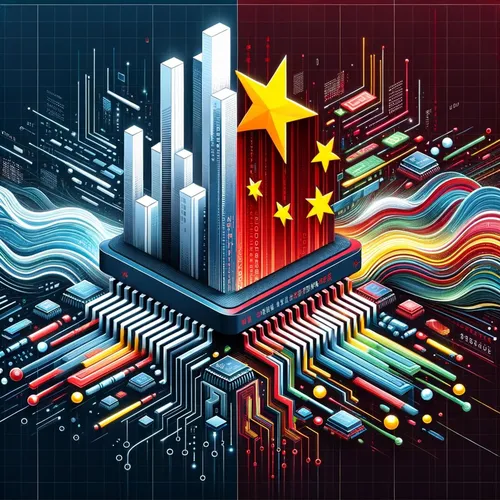Beijing's Hacking Heist, Nvidia's China Gambit, & Rare Earth Roulette: Tech War Update!
- Author
- Quiet. Please
- Published
- Wed 27 Aug 2025
- Episode Link
- https://www.spreaker.com/episode/beijing-s-hacking-heist-nvidia-s-china-gambit-rare-earth-roulette-tech-war-update--67533810
This is your Beijing Bytes: US-China Tech War Updates podcast.
It’s Ting here, your cyber-savvy guide to the running game of digital chess between the United States and China—welcome to Beijing Bytes: US-China Tech War Updates. Let’s decode the past two weeks, because the action has been relentless, the stakes are towering, and honestly, it’s juicier than a zero-day exploit on a payday Friday.
First, cybersecurity alarms are ringing like a DDoS attack on New Year’s Eve. The US, joined by twelve allies from the Five Eyes club and an ensemble of European partners, leveled a joint advisory blaming Chinese state-backed APTs for an ongoing campaign to breach global critical infrastructure. This Salt Typhoon operation isn’t your run-of-the-mill phishing escapade—it’s sophisticated, persistent, and clearly designed for global scale, with more than 200 U.S. targets already compromised according to the FBI. The campaign is so brazen, attackers aren’t just peeking at roadside routers—they’re making themselves at home in ISPs, telecoms, hotels, even transport networks, systematically hoovering up data that could paint a real-time picture of global communications and movement. Security agencies like CISA and the NSA hammered home the lesson—threat hunting and strong mitigations are non-negotiable for network defenders right now.
Now, on the supply chain and policy front, it’s like a turn-based strategy game with the rules changing every move. Chipmaker Nvidia, which once tiptoed through shifting export bans, is back on the board in China thanks to a revenue-sharing model cooked up by the Trump administration. Now, instead of AI chip bans, US companies can sell “compliant” GPUs like the H20 in China, provided Uncle Sam gets a 15% cut of the action. Nvidia is hedging its bets with new China-tailored Blackwell chips, but Beijing is playing hardball, questioning the security of these imported chips. Meanwhile, news from the South China Morning Post reports Beijing might block sales if those chips pose a “national security” risk. Nvidia’s CEO Jensen Huang insists there’s no backdoor, but skeptics abound.
As the US tries to keep its chip crown, China’s not standing still. Companies like Huawei and SMIC are hustling out new domestic alternatives and AI models like DeepSeek R1, which some analysts say are catching up to Western benchmarks. Washington’s biggest long-term fear? That bans force China to double down on self-sufficiency, possibly cutting the US out of the next wave of innovation.
Let’s not ignore the rare earths—if chips are the brain, magnets are the heartbeat of next-gen tech. President Trump wasn’t subtle in his warning: stop US-bound rare earth exports, and tariffs hit 200%. If you’re wondering how crucial these ties are, Trump straight-up revealed he grounded 200 Chinese planes by stopping the flow of Boeing parts, then restarted it as a peace gesture. For now, rare earth magnet trade is flowing, but the risk of escalation is a sword hanging overhead.
So what does it all mean for the industry? Uncertainty and cost spikes for everyone, but also a turbocharge to R&D, friendshoring, and digital sovereignty strategies. US companies can keep selling—at a cost—but the odds that China will catch up, or even leap ahead in certain domains, just went way up. If you’re an investor, you’re probably sweating through your AI stock portfolio more than usual. Expert analysts are now forecasting a fragmented global tech ecosystem, where US and Chinese standards diverge and everyone else has to pick a side—or play both, which is a tough gig.
That’s your Beijing Bytes update. Thanks for tuning in—subscribe so you don’t miss the next big move in this tech grandmaster’s game. This has been a quiet please production, for more check out quiet please dot ai.
For more http://www.quietplease.ai
